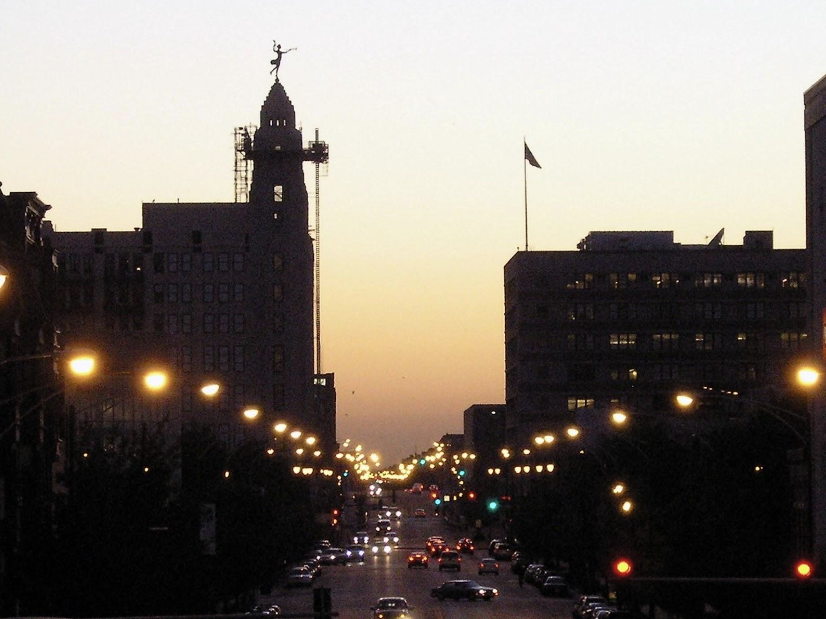|
As you probably know, our co-founder Parker is on a road trip through the American South and Midwest. Her journey is a testament to how far we’ve come as a country—a Black woman with her white husband and mixed-race kids in an RV is, fortunately, no longer an automatic invitation for violence. However, people of color still face many challenges when it comes to travel, and not all spaces are safe, despite all the nondiscrimination laws on the books. That’s why we created Inclusive Guide and why we must continue the fight for equity and justice for all.
Not too long ago—as recent as the 1970s, in fact—there existed blatantly racist areas throughout the country known as sundown towns. These all-white communities would display obvious signage telling Black travelers to stay out after sunset—or else. If Black travelers were spotted in a sundown town after dark, the community’s residents would often take extralegal measures, including verbal, psychological, and/or physical violence, to oust them. Black individuals were not only terrorized but also murdered in sundown towns. Various sundown towns existed across the South, but what some don’t know is that these racist communities could be found all around the United States. Oftentimes, there were more sundown towns in historically “free” states compared to their Southern neighbors. While some of these areas in the Midwest or West might not have labeled themselves as “sundown towns,” the fact remains that plenty of places across the country were hostile to Black individuals, even after the passage of the 1964 Civil Rights Act. (And to no surprise, several of these former sundown towns remain predominantly white, sometimes upwards of 80 or 90 percent.) Moreover, sundown towns would intentionally exclude other people of color and historically marginalized groups. Prohibitions existed for not only Black individuals but also people of Chinese, Japanese, Native American, or Jewish descent, among others. Because of these discriminatory practices, traveling long distances by car was difficult for BIPOC individuals, making resources like The Negro Motorist Green Book necessary for travelers. The scary part of this history is that, well, sundown towns aren’t entirely a feature of our country’s past. These areas and attitudes persist into the 21st century but with more subtle tactics at individuals’ disposal to keep Black people out. BIPOC folks have time and again experienced discrimination in predominantly white communities—this is simply a fact. While such racism may manifest itself as a microaggression, such as an insensitive joke about Black people and culture or an uneducated comment about colorblindness, or as something more dangerous like yelling, stalking, or fighting, what ultimately ties these experiences together is a commitment to white supremacy. To unlearn white supremacy, we must know our racist past (and present). Confronting the reality of sundown towns and other deeply racist aspects of US history is only the first step, however. Educating oneself is significant, but we must also actively combat the white-supremacist systems that have been embedded within the fabric of our country. We believe that Inclusive Guide is one part of the solution, yes, but even more important is tackling policy at the highest level to ensure everybody feels safe, welcome, and celebrated no matter where they are. Whether it’s at the local coffee shop or a national park, people of all identities deserve to be comfortable being themselves. Follow us on Twitter @InclusiveGuide, Instagram @inclusiveguide, and Facebook @InclusiveJourneys to stay up to date with Parker’s Liberation Tour across the South and Midwest. You’ll also want to follow along to catch more educational posts and insights like this about BIPOC travel. Sources Coen, Ross. “Sundown Towns.” BlackPast, 23 Aug. 2020, blackpast.org/african-american-history/sundown-towns/. Accessed 1 June 2022. “Historical Database of Sundown Towns.” History and Social Justice, justice.tougaloo.edu/sundown-towns/using-the-sundown-towns-database/state-map/. Accessed 1 June 2022. |
KWEEN WERK NARRATIVESKWEEN stands for Keep Widening Environmental Engagement Narratives. Archives
January 2024
Categories
All
|



 RSS Feed
RSS Feed
